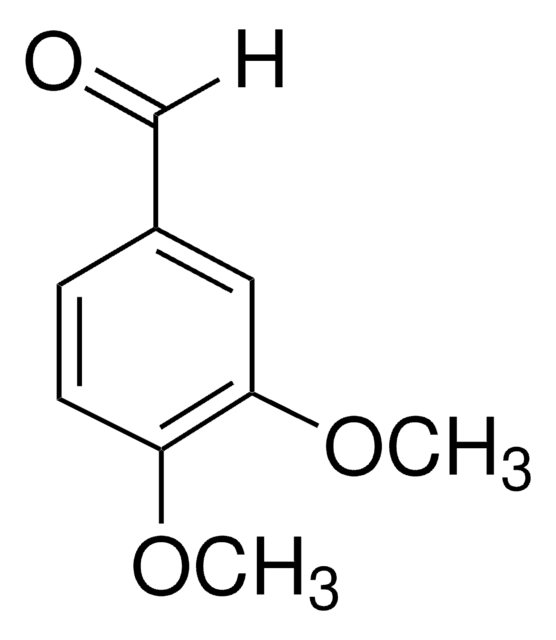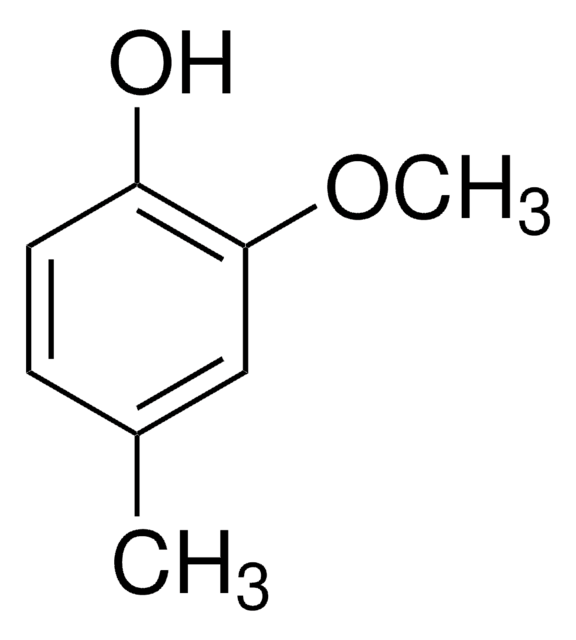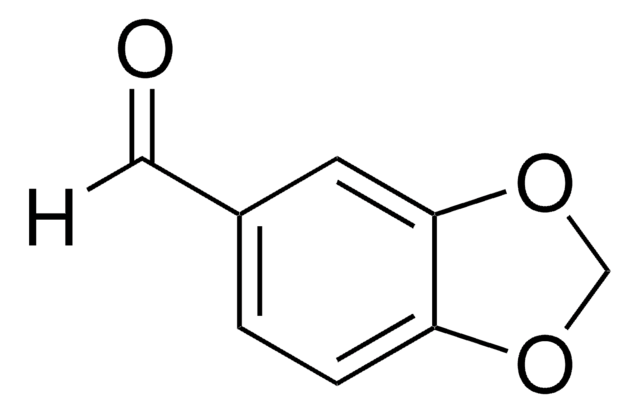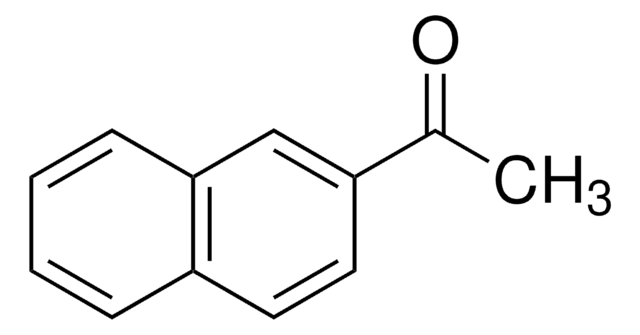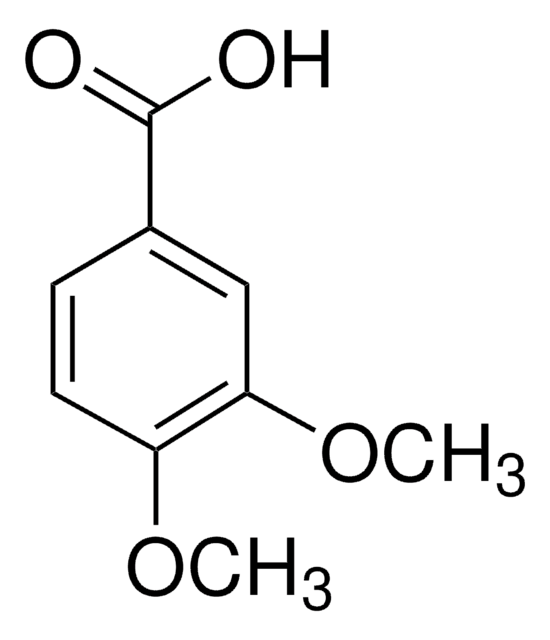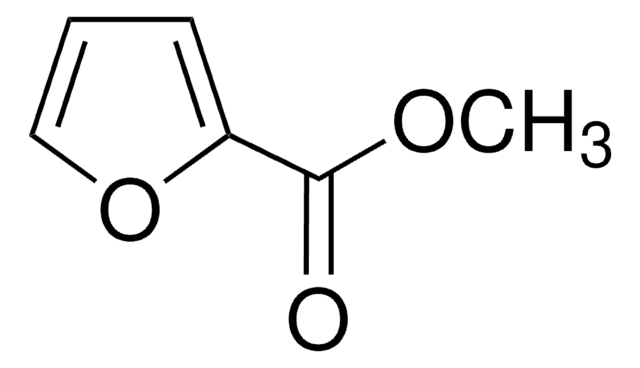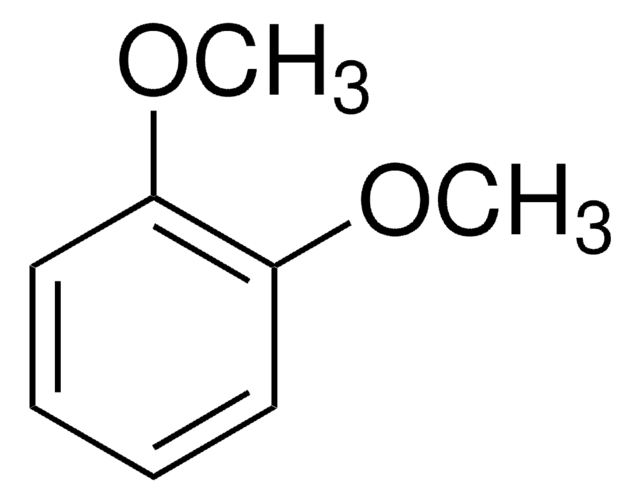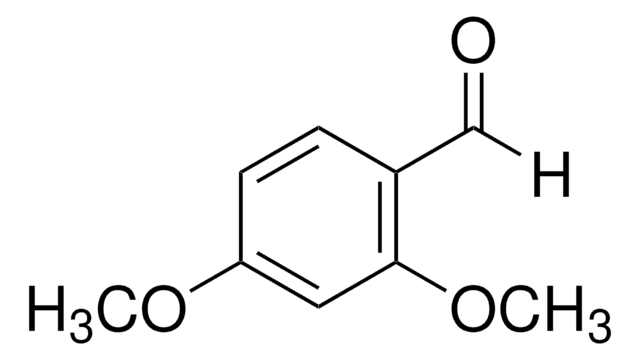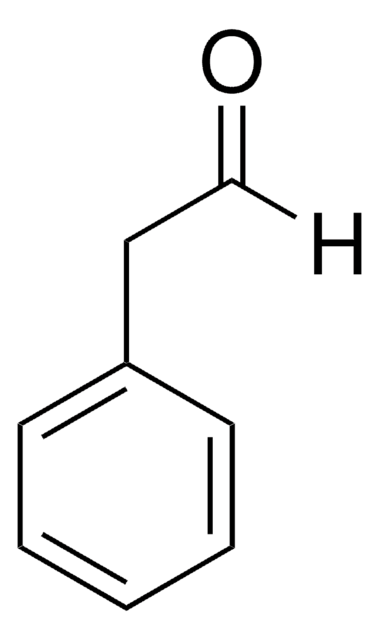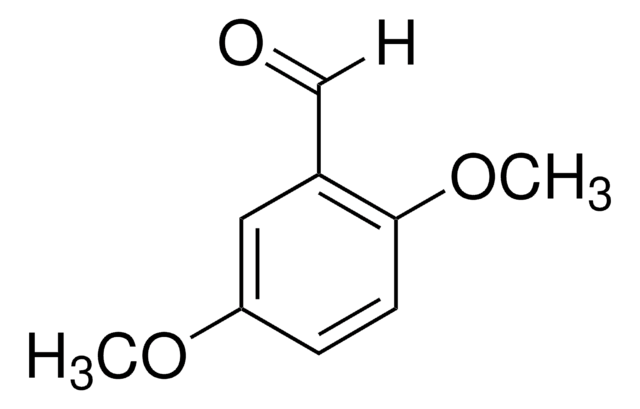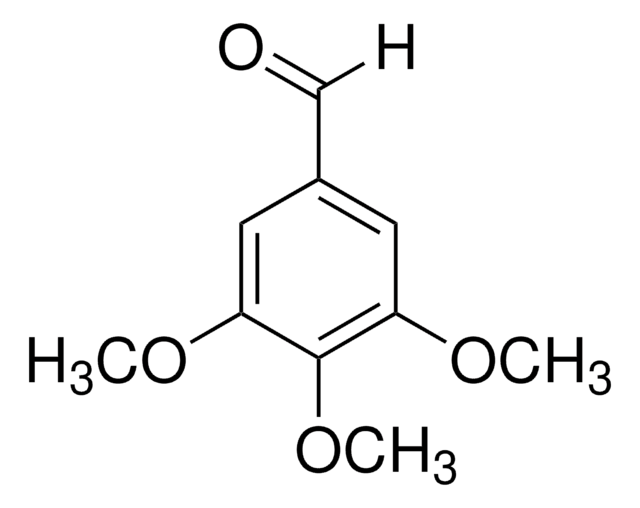W310905
Veratraldehyde
≥98%, FG
Synonym(s):
3,4-Dimethoxybenzaldehyde, Methylvanillin, NSC 24521, NSC 8500, Vanillin methyl ether, Veratraldehyde
About This Item
Recommended Products
biological source
synthetic
Quality Level
grade
FG
Fragrance grade
Halal
Kosher
Agency
follows IFRA guidelines
meets purity specifications of JECFA
reg. compliance
EU Regulation 1223/2009
EU Regulation 1334/2008 & 178/2002
FDA 21 CFR 172.515
Assay
≥98%
bp
281 °C (lit.)
mp
40-43 °C (lit.)
application(s)
flavors and fragrances
Documentation
see Safety & Documentation for available documents
food allergen
no known allergens
fragrance allergen
no known allergens
Organoleptic
cherry; creamy; woody; sweet; vanilla
storage temp.
2-8°C
SMILES string
[H]C(=O)c1ccc(OC)c(OC)c1
InChI
1S/C9H10O3/c1-11-8-4-3-7(6-10)5-9(8)12-2/h3-6H,1-2H3
InChI key
WJUFSDZVCOTFON-UHFFFAOYSA-N
Looking for similar products? Visit Product Comparison Guide
Related Categories
General description
Application
- Electrochemical analysis of the interactions of laccase mediators with lignin model compounds.: Investigates the role of veratraldehyde in the electrochemical breakdown of lignin, contributing to more effective biodegradation methods (Bourbonnais et al., 1998).
Biochem/physiol Actions
Other Notes
Signal Word
Warning
Hazard Statements
Precautionary Statements
Hazard Classifications
Acute Tox. 4 Oral - Skin Irrit. 2
Storage Class Code
11 - Combustible Solids
WGK
WGK 3
Flash Point(F)
235.4 °F - closed cup
Flash Point(C)
113 °C - closed cup
Personal Protective Equipment
Choose from one of the most recent versions:
Already Own This Product?
Find documentation for the products that you have recently purchased in the Document Library.
Customers Also Viewed
Articles
Recent regulatory changes in the US and EU have put the focus on fragrance safety and ingredient transparency, including the MoCRA, to be implemented within the next two years. Manufacturers and suppliers must comply with these changes to ensure they are meeting consumer demand and industry expectations for safety.
Our team of scientists has experience in all areas of research including Life Science, Material Science, Chemical Synthesis, Chromatography, Analytical and many others.
Contact Technical Service